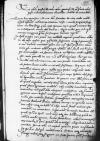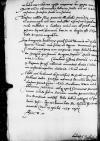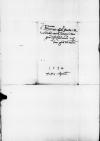Letter #1145
Iustus Lodvicus DECIUS (DECJUSZ, DIETZ) to Ioannes DANTISCUSCracow (Kraków), 1534-04-13
| received [1534]-04-21 Manuscript sources:
Auxiliary sources:
Prints:
| ||||||||||||
Text & apparatus & commentary Plain text Text & commentary Text & apparatus
Reverendissimo in Christo Patri et Domino, domino
Reverendissime in Christo Praesul, domine gratiose et cum primis colendo. Post commendationem humilem, salutem et omne bonum.
Cum
In epistulae recessu non parum me reddidit anxium, quod tam dolenter de casu nescio quo asscribit suspicare magis, quam scire me volens. Remittit quidem me ad reverendissimum praesulem nostrum, cuius ipsam naturam recte pingit. Fateor illum sic se mihi semper accomodasse, ut sperare liceat rectissime mihi affectum esse, verum quo ille in me animo est benigniore, hoc ego maiori illum colo observantia, ita me praebeo verecundum, ut non putem licere mihi minimum sciscitare. Et cum tunc accinctus itineri essem, adire non potui, adii autem valedicendi gratia dominum Zarnoviensem, qui mox epistulam ad se scriptam legendam mihi praebuit, et cum nec illum scire vidi, quod angebat, minus iterum licere putabam inquirere, quod istum ignorare videbam. Abii multis involutus cogitationibus. Ubi post dies aliquot rediissem atque etiamnum ignorare rem dominum Zarnoviensem vidissem, prorsus nihil inquirendum mihi esse credidi.
Interea gravissimo correptus morbo Ioannes Bethman senior, affinis meus, 10 Aprilis mortem obiit meque ex testamento cum aliis rerum suarum voluit esse curatorem. Ea mors tam insperata in causa tandem est, quod reverendissimum dominum episcopum non adii atque ita hactenus, quid acciderit mali, ignoro. Hodie funebrem absolvemus pompam, cras curabo, si fieri potest, ut intelligam aliquid. Sed festinat servitor Reverendissimae Dominationis Vestrae, ut nesciam, qua in parte consolanda sit Reverendissima Dominatio Vestra, sed ipsa meminerit fortem neque adversis frangi rebus sicque se geret, ne sorte potius quam prudentia res hactenus videatur egisse maximas. Hoc ego pro mea in Reverendissimam Dominationem Vestram observantia liberius scribo. Ubi rei intellexero seriem, fortassis scribam consultius.
Erasmo redditae sunt pecuniae illae dubio procul ex mercatu autumnali, nunc vero credo illum responsurum. Quod tam male tractatur a
Ex
Ego me humiliter et ex animo Reverendissimae Dominationi Vestrae commendo.
Reverendissimae Dominationi Vestrae deditissimus servus



